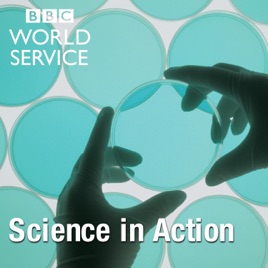
Advertise on podcast: Science In Action
Rating
4.5 from
Country
This podcast has
247 episodes
Language
Publisher
Explicit
No
Date created
2007/08/13
Average duration
30 min.
Release period
7 days
Description
The BBC brings you all the week's science news.
Social media
Check Science In Action social media presence
Podcast episodes
Check latest episodes from Science In Action podcast
Largest ever covid safety study
2024/02/22
A monumental Covid vaccine safety study of 99 million vaccinated people confirms just how rare adverse effects are and combats growing vaccine misinformation. Co-director of the Global Vaccine Data Helen Network goes through the results of this massive study.
This week, Science in Action is bringing you not one, but two extraordinary astronomical discoveries. First, Webb Fellow Olivia Jones on the star hidden in the heart of only supernova visible from Earth. Second, astrophysicist Samuel Lai on what is possibly the brightest object in our universe – a whopping 500tn times brighter than our sun – a star eating quasar.
And Roland chats with biologist Charlotte Houldcroft who was one of the first to blow the whistle on an absurd, AI generated image which somehow made it through the peer review process.
Presenter: Roland Pease
Producer: Ella Hubber
Production Coordinator: Jana Bennett-Holesworth
(Image: A health worker injects a man with a shot of the Inavac vaccine for Covid-19. Credit: BAY ISMOYO/AFP via Getty Images)
more
Climate scientist wins defamation case
2024/02/15
High-profile climate scientist Michael Mann has been embroiled in a 12-year battle against conservative commentators who claimed his data was fraudulent. Last week, he was awarded $1m in a defamation lawsuit. Michael joins Science in Action to discuss the case and the impact it may have.
Also, this week, Karyn Rode from the US Geological Survey has been using cameras on collars to track polar bear movement and diet. She tells Roland how the data reveals the devastating effect of sea ice loss on the bears.
Widescale blackouts in Africa, known as loadshedding, are getting worse. Chemist and winner of The Royal Society Rising Star Africa Prize 2023, Wade Peterson, has an innovative chemical solution to the problem.
And using a forest to detect the most violent astrophysical sources in our universe? Physicist Steven Prohira thinks it’s possible.
Presenter: Roland Pease
Producer: Ella Hubber
Production Coordinator: Jana Bennett-Holesworth
(Image: Dr. Michael E. Mann is seen outside of the H. Carl Moultrie Courthouse on February 5, 2024 in Washington, DC. Credit: Pete Kiehart for The Washington Post via Getty Images)
more
Particle physics v climate change
2024/02/08
Should CERN be spending $17 billion on a new atom smasher whilst we face, climate change, the most pressing crisis of our time? Materials-turned environmental scientist Mark Miodownik and CERN physicist Kate Shaw debate the issue.
One of the issues Mark argues more people should be tackling are the climate change driven forest fires which recently ravaged Chile and killed more than 100 people. Chilean climate scientist Raul Cordero discusses the factors which led to the devastating fires.
And Nasa physicist and oceanographer Susanne Craig explains their freshly launched satellite PACE, which hopes to get a better picture of our changing oceans and use this information to tackle climate change. A quest Nasa manages to achieve whilst also trying to answer the big questions about our universe.
Presenter: Roland Pease
Producer: Ella Hubber
Production co-ordinator: Jana Bennett-Holesworth
(Photo: Firefighters work at the Botanical Garden after a forest fire in Viña del Mar, Chile, 4 February, 2024. Credit: Javier Torres/AFP)
more
Unethical data gathering in China
2024/02/01
Starting upbeat this week, engineer Teddy Tzanetos, team lead of NASA’s Ingenuity mission, talks on the Mars-based helicopter which defied all expectations.
Our big story this week is on the scientific papers and research databases which contain the DNA profile of thousands of people from persecuted ethnic minorities in China. This data is often collected in association with security forces. Computational biologist and campaigner Yves Moreau now leads the call for scrutiny and the retraction of these papers and databases, which lack evidence of free and informed consent.
We often cover the ever-growing threat of bird flu to mammalian populations on Science in Action. But how does the virus make the successful leap from bird to mammal cells? Virologist Wendy Barclay discusses the potential tricks the virus uses to adapt and grow.
And, finally, zoologist Sam Fabian has been trying to answer the question everyone thinks they already know: why are moths attracted to artificial light?
Presenter: Roland Pease
Producer: Ella Hubber
Production Coordinator: Jana Bennett-Holesworth
(Image: Protest in Urumqi in China's far west Xinjiang province on July 7, 2009. Credit: PETER PARKS/AFP via Getty Images)
more
Drilling into the past
2024/01/25
Molecular biologist Prof Jason Chin tells us about his research into accelerated evolution and how it could help create new substances to be used in medicine, chemistry and more.
In South America, palaeogeneticist Dr Verena Schuenemann has been extracting genetic material from human remains to find out more about treponemal diseases, which include syphilis, yaws and bejel.
And moving across the Atlantic to the Mediterranean, volcanologist Professor Timothy Druitt has discovered new evidence of a massive volcano that erupted beneath the sea near Santorini around 500,000 years ago.
Staying in the Mediterranean, we speak to Professor Rachel Flecker, co-chief scientist on Expedition 401 of the International Ocean Discovery Program. She and her team are drilling down into the seabed to establish how the Gibraltar Strait has altered over time. As well as influencing the Mediterranean's salinity, this changing movement of water has impacted the entire planet's oceans and climate.
Presenter: Roland Pease
Producer: Alice Lipscombe-Southwell
Production co-ordinator: Jana Bennett-Holesworth
(Image Credit: Thomas Ronge)
more
Swine fever in South East Asia
2024/01/18
African swine fever has now reached Southeast Asia.This part of the world has high diversity in wild pigs, some of which are endemic to their native islands. In Borneo, pigs are a hugely important food source for indigenous populations, and are a vital prey species for many big cats. In some regions, the pig populations have now dropped by 90 to 100 per cent due to swine fever. Conservationist Dr Erik Meijaard explains what this could mean for Borneo.
Sticking with diseases, the World Mosquito Program breeds mosquitoes infected with Wolbachia. Why? Because mosquitoes infected with this bacteria are unable to become carriers of dengue, Zika and other mosquito-borne diseases. Dr Scott O'Neill of the World Mosquito Program talks about their latest research and the massive mosquito factory they're building in Brazil this year.
Finally this week, Dr Nitzan Gonen discusses her new study, where mouse testes organoids have been grown in the lab. She tells us about the potential applications for this research.
Presenter: Roland Pease
Producer: Alice Lipscombe-Southwell
Production co-ordinator: Jana Bennett-Holesworth
(Photo: Bornean bearded pig. Credit: Sylvain Cordier/Getty Images)
more
Seeking supernovas
2024/01/11
The James Webb Space Telescope has revealed the clearest ever view of the stunning Cassiopeia A supernova, complete with a weird feature called 'the green monster'. Professor Dan Milisavljevic, an astronomer at Purdue University, tells us all about his research into this space-based beauty.
Professor Tamara Davis from the University of Queensland has been turning her eye to far more distant supernovas, and explains how they have given us new insight into the Universe's expansion.
Moving on to human history, William Barrie from the University of Cambridge tells us about a new study that explores the reason for high levels of multiple sclerosis in northern Europe.
And going further back in time, researcher Ethan Mooney has studied a sample of fossilised skin, which may be the oldest ever discovered.
Presenter: Roland Pease
Producer: Alice Lipscombe-Southwell
Editor: Martin Smith
Production co-ordinator: Jana Bennett-Holesworth
(Photo: Cassiopeia A Supernova. Credit: Nasa, ESA, CSA, STScI, Danny Milisavljevic, Purdue University, Ilse De Looze, UGent, Tea Temim, Princeton University)
more
Tackling tuberculosis in South Africa
2024/01/04
In this episode of Science in Action, we find out that tuberculosis (TB) is the leading cause of death in South Africa.
After visiting a clinic dedicated to the diagnosis and treatment of TB, Roland Pease meets researcher Professor Grant Theron at Stellenbosch University, who explains why the disease is still so prevalent.
Next we hear from Professor Novel Chegou and his student Candice Snyders, also based at Stellenbosch University. They are researching biomarkers to diagnose tuberculosis and have already successfully developed a rapid finger-prick test to identify TB.
Roland then chats to vaccine researcher Professor Thomas Scriba at the University of Cape Town, who reveals more about the current landscape of TB vaccination.
Presenter: Roland Pease
Producer: Ella Hubber
Editor: Martin Smith
Production co-ordinator: Jana Bennett-Holesworth
(Photo: Frontline healthcare workers wear a protective mask and tb mask to prevent the spread of airborne disease. Credit: stockstudioX/Getty Images)
more
Following in the footsteps of ancient humans
2023/12/28
In this special episode of Science in Action, Roland Pease travels to South Africa to gain a deeper understanding of human origins.
Along the way, he speaks to ichnologist Charles Helm and national parks ecologist Mike Fabricius, who take him to a special – and extremely windy – location, where early human footprints are permanently preserved in the rock.
At the University of Cape Town, Roland speaks to Rieneke Weij and Georgina Luti. They are studying the geochemistry of rocks that existed in caves alongside our ancient relatives.
Across the city, in the Iziko South African Museum, Wendy Black and Amy Sephton discuss the ways in which we think about our deep past and how we can decolonise the human story.
Presenter: Roland Pease
Producer: Ella Hubber
Editor: Martin Smith
Production co-ordinator: Jana Bennett-Holesworth
(Image: Human fossilized footprint in hardened mud or clay. Credit: Waltkopp/Getty Images)
more
Volcanic eruption lights up Iceland
2023/12/21
This week, the Reykjanes volcano in Iceland has erupted, following weeks of seismic activity. Edward Wayne Marshall, from the University of Iceland, brings us the latest science about the volcano.
Also this week, the UK's 40-year-old JET fusion facility has been switched off. Roland Pease went along to watch.
Fusion facilities are trying to create clean energy by replicating the processes in the Sun. And the Sun itself is currently approaching solar maximum, which means we may get to enjoy more spectacular auroras but could also experience widespread radio blackouts. Solar physicist Dibyendu Nandi, from the Centre of Excellence in Space Sciences in Kolkata, tells us more.
And in the outer reaches of our Solar System, the iconic Voyager 1 craft has started sending back nonsense data. William Kurth, who has worked on Voyager since its launch in 1977, reveals his personal and scientific connection to the mission.
Presenter: Roland Pease
Producer: Alice Lipscombe-Southwell
Editor: Martin Smith
Production Co-ordinator: Jana Bennett-Holesworth
(Image: Volcano Erupts On Iceland's Reykjanes Peninsula. Credit: Micah Garen/Getty Images)
more
The science of morning sickness
2023/12/14
An international team of researchers led by the University of Cambridge’s Prof Stephen O’Rahilly have discovered that sensitivity to the hormone GDF15 may cause severe morning sickness during pregnancy. Dr Marlena Fejzo, who took part in the study, tells us more.
Back in September, the OSIRIS-REx craft dropped a sample from the asteroid Bennu into the Utah desert. Now, scientists around the world have started studying the dust fragments in earnest. We join Dr Ashley King from the Natural History Museum in London and beamline scientist Dr Sharif Ahmed as they embark on their research.
Professor Scott Fendorf, from the University of Stanford, reveals that wildfire smoke contains heavy metals, which may be why it’s so damaging to our health.
Dr Junjie Yao from Duke University has worked on a new 'sono-ink'. This ink can be used to 3D print structures within the body, which can be used to mend tissues, bones and organs.
Presenter: Roland Pease
Producer: Alice Lipscombe-Southwell
Editor: Martin Smith
Production Co-ordinator: Jana Bennett-Holesworth
(Photo: Young pregnant woman, 35 years old, feeling sick on a toilet. Credit: Getty Images)
more
Can carbon capture live up to its hype?
2023/12/07
The burning of fossil fuels releases the greenhouse gas CO2. Many countries at COP28 have expressed an interest in using carbon capture technology to permanently capture and store this CO2. Climate and energy expert Dr Richard Black tells us more about this technology and how helpful it is in the fight against climate change.
Sticking with COP28, Dr Manjana Milkoreit, from the University of Oslo, contributed to this week’s Global Tipping Points report, which revealed the Earth could be racing toward a set of critical thresholds that will put the Earth into a new state.
Dr Joyce Kimutai is also at COP28. Originally from Kenya, she’s the lead author of a new paper from World Weather Attribution. The paper found that climate change has made deadly rainfall in East Africa up to two times more intense.
And finally, this week Professor Dany Azar published a paper in Current Biology that not only identified the oldest fossilised mosquito, but also found that it was a male with blood-sucking mouthparts – a trait only seen in female mosquitoes today.
Presenter: Roland Pease
Producer: Alice Lipscombe-Southwell
Editor: Martin Smith
Production Co-ordinator: Jana Bennett-Holesworth
(Image: TBC. Credit: TBC / Getty Images)
more
Podcast reviews
Read Science In Action podcast reviews
burnbizzle
2023/06/12
Excellent podcast and great host
This is an excellent podcast with great topics and well hosted. It’s nice when the host covers the topic with enough knowledge to ask intelligent and ...
more
blindGuyJoe
2023/05/13
Thanks for a GREAT show!
Thanks Roland for a GREAT presentation & thanks to the producer for a GREAT podcast!
mondomando🍺
2022/11/14
Beat all around
Best all around science show out there. I’ve been listening since the start and I never cease to be amazed at our world. I’m glad the Covid coverage i...
more
OskiBearHomie
2021/11/12
Pleasure for a scientific omnivore
The range of topics on the show are delightfully varied, with conceptual depth, timeliness, and moderation by a knowledgeable host.
etherdog
2020/10/17
Great science podcast
I am so glad the BBC gave Pease a chance.
hydroxypropyl Methylcellulose
2021/06/19
Tired of the
Been listening for two years now , apparently the only thing worthy of reporting on has been Covid 19 and climate change.
These are the only 2 subje...
more
Irving679
2020/09/01
My favorite science podcast
I like to listen to this podcast while commuting to my work at the lab to get myself excited about the nitty gritty of science. They do a bunch of sho...
more
1000laurie
2020/08/30
Thank you!
Sadly my government can’t clearly (truthfully) tell me the scientific benefits/risks & how safe/effective convalescent plasma is. This episode was cle...
more
Must for Droid converters
2020/08/07
Pure, unfiltered, unbiased, science
If you’re looking for science that’s not watered down so you can be informed in ways the news media cannot offer, this is the place for you.
Mantis79
2019/05/02
GLOBAL WARMING CAUSES EVERYTHING
Everything is caused by climate change and CO2 is toxic deadly gas plus astronomy - that pretty much sums it up. Do scientists focus on real toxins on...
more
Podcast sponsorship advertising
Start advertising on Science In Action & sponsor relevant audience podcasts
You may also like these science Podcasts

4.7
249
109
COMPLEXITY: Physics of Life
Santa Fe Institute
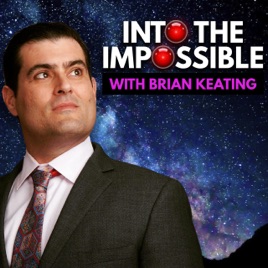
4.7
828
386
Into the Impossible With Brian Keating
Big Bang Productions Inc.
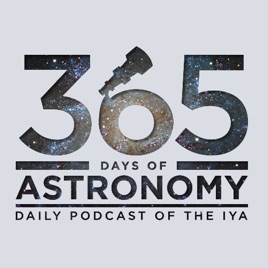
4.4
316
250
The 365 Days of Astronomy
365DaysOfAstronomy.org
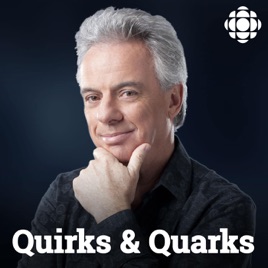
4.7
291
26
Quirks and Quarks
CBC

4.5
5334
20
Mysterious Universe
8th Kind
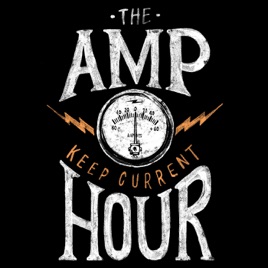
4.9
224
50
The Amp Hour Electronics Podcast
The Amp Hour (Chris Gammell and David L Jones)

4.3
22
990
Clinical Chemistry Podcast
Association for Diagnostics and Laboratory Medicine
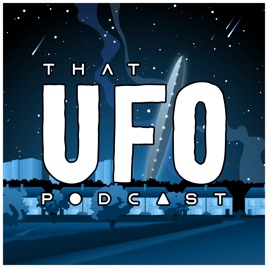
4.7
565
718
That UFO Podcast
That UFO Podcast
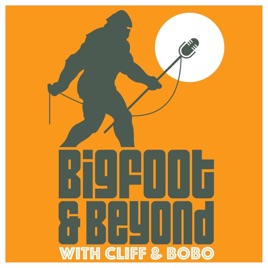
4.7
1606
260
Bigfoot and Beyond with Cliff and Bobo
Bigfoot and Beyond LLC

4.7
136
131
Raising Health
Andreessen Horowitz



